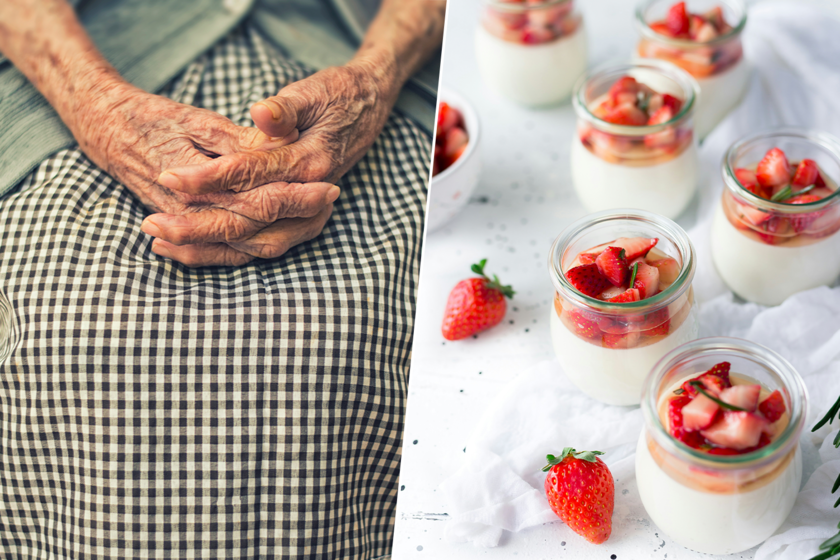Every morning, for more than a century, María Branyas Morera repeated a simple gesture: open a yogurt and eat it slowly. It was always of the same brand, the Fageda, made in the Catalan garrotxa. When he died in 2024, at 117 and 168 days, he not only became the longest person in the world, but also the protagonist of unexpected finding: that daily habit could be one of the keys to his surprising health.
The yogurt key. The media focus was unleashed for a seemingly simple detail: Branyas took daily yogurts of the Catalan brand La Fageeda. After knowing the results of the investigation, the company received calls from the United Kingdom of people interested in buying or even distributing them, according to its director in the SER window.
But it seems that he did not settle for one. According to the study, published in Cell Reports Medicine, Branyas ate up to three daily yogurts of this Catalan brand, known for its social work. In addition, their yogurts are made with their own farm milk and a fermentation process designed to keep bacteria alive until the end of the useful life.
Far beyond dairy. The scientific analysis concludes that the intestinal microbioma was “almost youthful” despite its advanced age. In his samples there was an unusual abundance of bifidobacterium, bacteria that usually decline over the years and that help reduce inflammation and improve metabolic health. The yogurt could contribute to this balance, but the researchers themselves warn that it is not the only key. “It cannot be confirmed that only yogurt explains its longevity, although it probably modulated its microbiome,” they point out in the study.
A combination of favorable factors. Beyond the yogurts, the biology of María Branyas hid a surprising puzzle. Genetics gave her winning letters: variants that protected her from dementia, cancer or heart problems. Even their telomeres, those structures that are wearing with each cell division, seemed to play against – they were very short – but in their case they could become a shield in front of the tumors.
As for his biological (or epigenetic) clock, he revealed, that in biological terms, it was up to two decades younger than his ID. To that advantage was added an still energetic immune system and an enviable cholesterol metabolism.
The rest she put it: Branyas followed a Mediterranean diet, drank an eight -cereal shake every morning, never smoked or drank alcohol, walked daily until well entry at advanced age and maintained an intense social life. He survived two world wars, Spanish civil war, Spanish flu and even COVID-19, which was recovered with 113 years.
A new research route. The Manel Esteller team of the Josep Carreras Institute believes that this case can open the door to therapies that imitate the effects of the “good genes” or a rejuvenated microbiome. The study even points to the possibility of developing drugs that replicate the benefits of a healthy intestinal flora.
A new debate. As always happens when a line of study opens that not all experts coincide. Harvard’s immaculata immaculata, recalled that extrapolating from a single case is risky: “Longevity depends on probabilities, not absolute.” From Johns Hopkins, oncologist Mary Armanios added that the genes associated with long life do not always predict the future: what seems advantageous in some may not be in others. In addition, social inequality itself introduces differences of up to 20 years in life expectancy, as Armanians illustrated with Baltimore’s example.
Beyond the anecdote. The story of María Branyas shows that aging does not have to get sick, as The Guardian titled. Its longevity seems the result of a delicate balance between a resilient genetics, healthy habits, a positive social environment and, perhaps, also a daily yogurt.
Image | UNSPLASH and UNSPLASH
WorldOfSoftware | We already had an ozempic to lose weight, now someone has created one for the eternal youth: NAD+ promises











